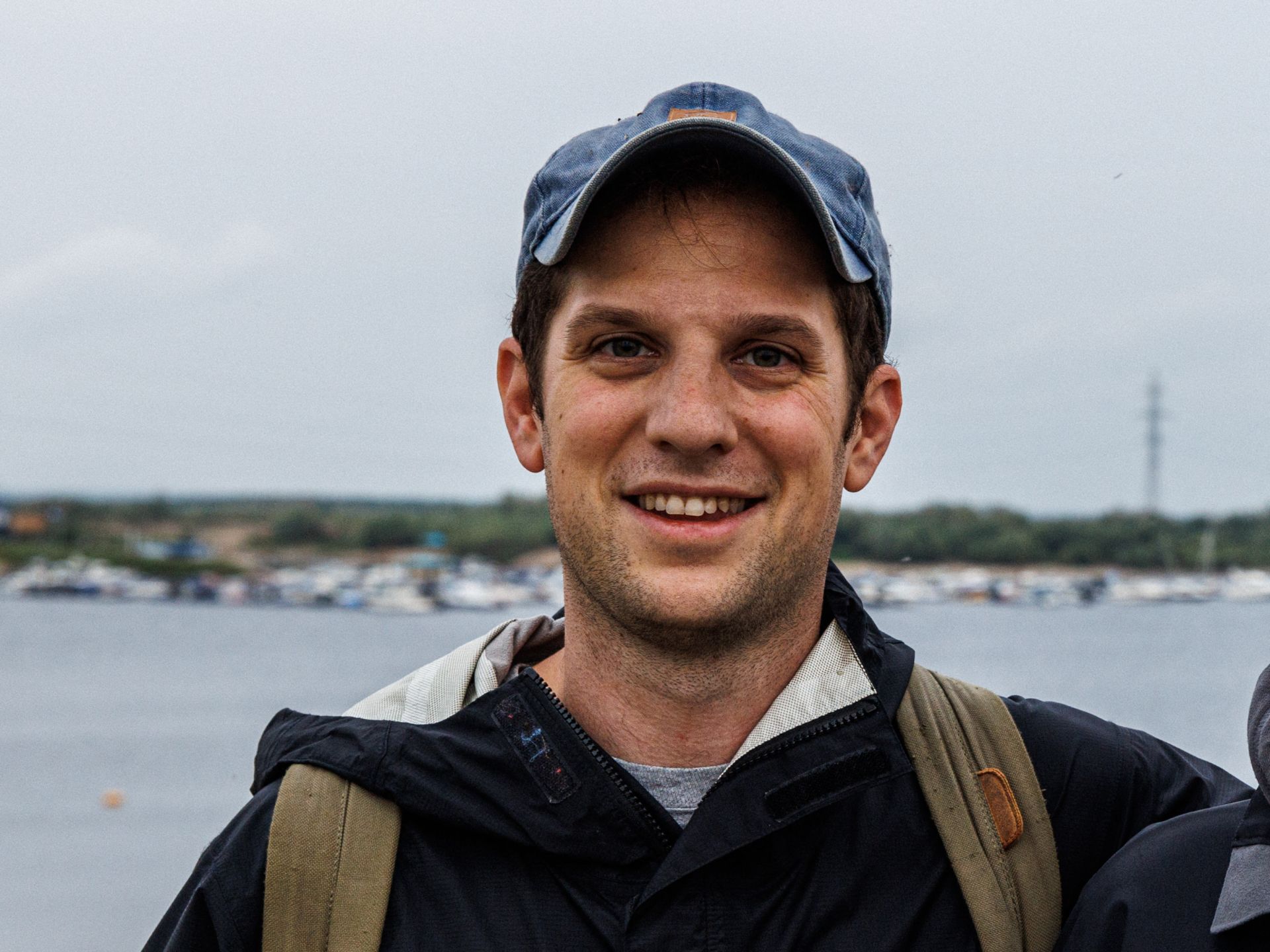“Spotlight” is a newsletter about underreported cultural trends and news from around the world, emailed to subscribers every Monday and Wednesday. Sign up here.
When the American journalist Evan Gershkovich was arrested in Russia last week on spying charges, the community of current and former Moscow correspondents scattered across the globe felt a collective sucker punch. The cardinal, unwritten rule accompanying reporting in Russia is that accredited foreign journalists are not touched by the government.
“Oh, my God, they actually did it,” we whispered to each other. There was absolutely zero inclination or reason to believe that Gershkovich, who works for the Wall Street Journal, was doing anything but his job. His newspaper and multiple press freedom organizations vehemently denied the Russian accusations. He could face 20 years in prison if found guilty.
When reporting in Russia, there were certain unwritten rules that we lived by, ways to ensure that our accreditation remained intact and we got to stay in the country. (The most important of these was to not report on President Vladimir Putin’s personal life or wealth.) The Russian government followed its own set of rules, too.
Various tactics of intimidation were used, some of which I experienced myself during my eight years as a journalist in Moscow, including having my photo blown up on a large screen at a Foreign Ministry press briefing, inviting a slew of trolls who sent me antisemitic emails. Yet we all understood that we would not be arrested or thrown behind bars for something we didn’t do. And while there was a certain banter — extremely uncomfortable and almost always initiated by the Russians — exchanged between journalists and our Foreign Ministry overlords about espionage, no American reporter had been arrested on spying charges in almost four decades. The last time it happened was in 1986, when Russia was still part of the communist Soviet Union.
That all changed, of course, when the 31-year-old Gershkovich was arrested while reporting in the Urals city of Yekaterinburg on assignment. The FSB, Russia’s security service, said it detained him on suspicion of spying for Washington and collecting information “on an enterprise of the Russian military-industrial complex.” His detention came as a shock: Gershkovich, who was born in New Jersey to Jewish parents who had fled the Soviet Union, had made Russia his second home.
His arrest has sparked condemnation from around the world. President Joe Biden has weighed in, telling Russia to “let him go.” Britain’s Prime Minister Rishi Sunak has pledged to stand “shoulder to shoulder” with the campaign to free Gershkovich. The Wall Street Journal, citing diplomats, has reported that his detention was likely to be raised at the U.N. Security Council, of which Russia has just taken the presidency. In an open letter demanding his release, dozens of exiled Russian journalists called the accusations against him “phony and unjust.” Gershkovich’s close-knit circle of friends from Moscow are promoting rather moving, nonstop campaigns on their social media feeds.
Ahead of the weeklong Jewish holiday of Passover, which celebrates the Jews’ freedom from slavery and begins on Wednesday evening, a group of journalists and editors at the Journal asked fellow Jews around the world to think of Gershkovich. Using the hashtag #aPlaceForEvan, Gershkovich’s colleagues asked that the global Jewish community leave an empty seat at the seder, the family meal on the first night of Passover.
The outpouring of support for Gershkovich has been enormous, an indication of the West’s commitment to press freedoms, and the extent of the shock at Russia’s actions. But the intensity of this enthusiasm is also somewhat upsetting: It is indicative of the world’s ability (or inability) to engage with such issues over a sustained period. The editors at the Journal have themselves said that the more attention paid to Gershkovich’s plight, the better. Everyone seems to know that the window for garnering global interest is woefully small. The shock of his arrest, and the global outcry accompanying it, will get drowned out and replaced by other horrors in the news, other headline-grabbing events.
This is worsened by an environment in which we are increasingly becoming used to state hostage-taking. In recent years, growing numbers of Americans have been detained by foreign governments on charges the U.S. considers politicized. The James W. Foley Legacy Foundation, named after the American journalist who was kidnapped and killed by the Islamic State group in Syria in 2014, says there are currently 54 U.S. citizens or permanent residents deemed to be wrongly detained or held hostage in 15 countries, including Egypt, China and Turkey.
Shortly after Paul Whelan, a former Marine and U.S. citizen, was arrested in Moscow on espionage charges in 2018, his detention faded from the front pages. Even Brittney Griner, a professional basketball player who was a household name for many Americans, was forced to spend almost 10 months in a Russian prison after customs officials found prescribed cannabis oil in her luggage. She was released in a prisoner swap for the Russian arms dealer Viktor Bout, who was being held in the U.S. Whelan, on the other hand, still languishes in a Russian prison.
On the first night of Passover, Gershkovich will have spent a week in Moscow’s notorious Lefortovo prison. He has been denied access to the lawyer his employer has provided. Monitors from the Russian prison watchdog are the only ones able to relay any information to the outside world; earlier this week, they reported that Gershkovich was in a “cheerful mood” and making use of the on-site library. Even if this is true, for how long can he stay upbeat? How many Russian-language novels can he stomach in solitary confinement? What of his mental state when people forget about his incarceration?
Sign up to our mailing list to receive our stories in your inbox.



